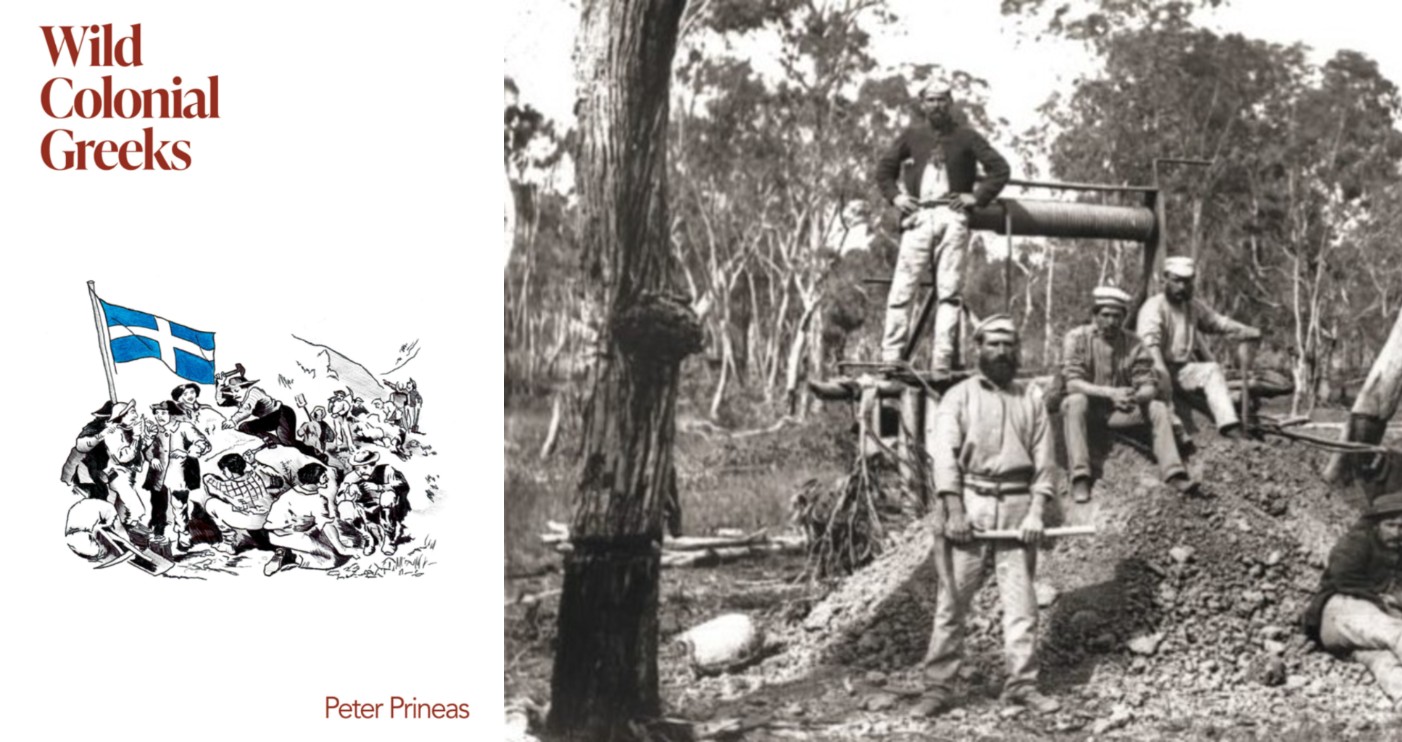In his recently published book, ‘Wild Colonial Greeks’, Sydney writer and historian Peter Prineas attempts to explore the true origins of Greek history in Australia.
The book takes readers on a journey through colonial Australian history as the author looks to uncover the first Greek arrival to Australia.
One candidate, who is referenced multiple times throughout the book, is a Greek from Corfu named George Manuel, who was living in Australia in 1823. This was six years before the arrival of the seven pirate-convicts currently considered to be Australia’s first Greeks.
The book also shows how Greeks were viewed by the mainstream press and chronicles at the time, bringing to life the goldfields doctor Spiridion Candiottis, who clashed resoundingly with newspapermen in Victoria and Queensland.
See below for a small extract from the book, Wild Colonial Greeks:
It seems to have been generally accepted that apart from the seven pirates, the only other person of Greek origin to come to Australia as a convict, was a man named Joseph Simmons or Simmonds. He is recorded in convict archives as a seaman aged 40, a single man, an illiterate, and in religion a Protestant, who gave his ‘native place’ as Greece. Gilchrist, however, describes him as an Ionian Islander and, ‘in fact a Greek Jew who landed in Sydney from the convict ship Isabella IV in March 1832’, after having been ‘convicted at the Dorsett Assizes and sentenced to transportation for life for stealing a handkerchief’.
It is surprising that another convict with the decidedly Greek name of Timoleon Vlasto has been overlooked by historians. It is even more surprising when one considers the infamy that Vlasto acquired in 1849 for stealing ancient Greek coins worth a small fortune from the British Museum in London. His trial was widely reported in the British press and ended with a sentence of transportation for a term of seven years to Van Diemen’s Land (now Tasmania), where he arrived near the end of May 1851. Timoleon Vlasto’s crime and his Greek identity – albeit that of a diaspora Greek – was also reported in Australian newspapers.

